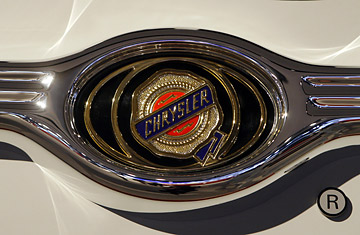
As General Motors fights for survival, the catalog of its recent woes must include the name Fiat. Not only did a 2000 partnership between the U.S. and Italian carmakers sputter badly — as the two companies struggled to find consumer-friendly models and integrate their production facilities — but also GM was eventually forced into an unprecedented $2 billion "divorce" payout to avoid having to purchase the then debt-plagued Fiat.
Now, as both American and European carmakers face plummeting sales and an industry in flux, the storied Turin automaker is set to return to Detroit for a new, though less fixed, marriage. Fiat and Chrysler announced a nonbinding deal Tuesday to create a partnership that will give the Italian automaker a 35% stake in the smallest of the badly strapped American Big Three. The joint announcement stipulated that Fiat's commitment to its struggling partner would be solely an equity interest and that "the alliance does not contemplate that Fiat would make a cash investment in Chrysler or commit to funding Chrysler in the future." (See the best cars from the 2009 Detroit Auto Show.)
Still, both companies see short- and long-term upsides to joining forces. Chrysler is in dire straits, considered the closest to collapse of the Big Three. The $4 billion in federal loans it received last month to help keep it afloat, and the additional $3 billion it hopes to obtain in March, carries the stipulation that the company move quickly to find ways to produce smaller, more fuel-efficient models, which have long been Fiat's bread and butter. "A Chrysler-Fiat partnership is a great fit," said Chrysler chairman Bob Nardelli in the joint communiqué. "It creates the potential for a powerful new global competitor." Nardelli pointed to Fiat's "competitive, fuel-efficient vehicle platforms, powertrain and components" as well as its distribution outside North America, including sales networks in Asia and Latin America.
But Fiat is hardly a magic pill for Chrysler, which is burdened by inefficient factories that need major overhauls to allow for production of smaller, smarter automobiles, says Giuseppe Berta, a Milan-based car-industry expert. "At this point, Chrysler can say it tried to get out of a corner, that it found a European company that makes more marketable cars," says Berta. "But if you want to actually use Chrysler facilities to construct a Cinquecento or Alfa MiTo, you're talking about a major cost." (See the 50 worst cars of all time.)
Fiat, which began a remarkable turnaround with the whopping cash payout from GM in 2005, is also struggling again, along with the rest of the auto industry, as car sales plummet amid a deepening economic crisis. Fiat has been itching to get its stylishly economic models on the market in the U.S., and the deal with Chrysler can be seen as part of a series of "strategic partnerships" it has sealed with other automakers in recent years, including one with Tata motors and a deal to build diesel engines with Daimler-Chrysler, before the breakup last year of that German-American alliance.
Indeed, to understand the evolution that led to Tuesday's announcement, it is worth returning to the 2005 negotiations in which GM was forced to buy itself out of the cumbersome put option in its alliance with Fiat. The then brand-new CEO of the Turin company, Sergio Marchionne, emerged as a tough-as-nails dealmaker as he sat across the table from top GM executives. The Italian-born, Canada-raised Fiat chief told his American counterparts they would cough up the full value of the put option or battle it out in court. GM blinked, and the huge payout added to its accumulating troubles that today leave the American auto giant struggling to avoid bankruptcy.
For Fiat, on the other hand, the sudden infusion of cash and the new chief executive's plans for streamlining management helped the Turin company begin a notable turnaround after its decade-long crisis and raised Marchionne to near mythical status in carmaking circles. Tuesday's joint statement notes that "Fiat would provide management services supporting Chrysler's submission of a viability plan to the U.S. Treasury as required. Fiat has been very successful in executing its own restructuring over the past several years."
If Chrysler is forced to declare bankruptcy, Fiat would be protected from losses and might even be able to acquire American assets at favorable prices in the shakeout. A senior Fiat official calls Tuesday's signature "just a start," noting that much will depend on how the U.S. auto bailout proceeds under the new Obama Administration. "This is still far from a done deal," says the official. "We've already said that with the current situation in world markets, there needs to be major consolidation in the car business, and as we've shown today, we'd like to be part of that." Still, despite its more recent success, the Italian company's share price is near an all-time low, and Tuesday's deal may have been an attempt, above all, by Fiat to strut for investors. Fiat shares, which had been suspended earlier Tuesday, rose nearly 4.5% after the deal was announced, only to end the trading day in Milan down 1.3%, to 4.42 euros.
Marchionne has recently talked about the company's becoming something of an Intel of the auto industry, providing key component parts to other car manufacturers. There are also rumors that he wants to build a $3,500 model Fiat Punto that could reconfigure the concept in the West of an economy car. But whether or not he's Chrysler's savior or the man to revolutionize the entire industry, Marchionne seems to have proved again that he knows how to strike a hard bargain: Fiat has landed 35% of Chrysler without spending a dime.
